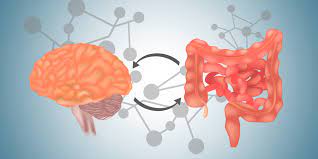Nutritional Therapy for Mental Health

When trying to treat depression and anxiety, most people turn to psychotherapy, oral medications, or some other medical intervention.
While these treatments are effective and often a vital part of many individuals’ mental health toolkits, they aren’t the only ways to prevent and treat mental illness. In particular, research increasingly suggests that our diets can have a significant impact on our mental health. For example, a 2017 study found that around a third of subjects who switched to a Mediterranean-style diet no longer had symptoms of depression by the end of the trial, compared to eight percent of the participants who made no dietary changes.
Nutritional therapists utilize these findings to help patients with a wide range of conditions by offering evidence-based, individualized advice on dietary and other lifestyle changes they can make to support their bodies and, in turn, their minds.
Let’s look at some answers to common questions about nutritional therapy and its role in mental health.
How Does Nutritional Therapy Impact Mental Health?
It’s common knowledge that what we eat can impact our physical health. For example, it’s well known that eating a diet high in sugar can increases one’s odds of developing diabetes and that high cholesterol, high sodium diets can increase the risk of developing heart disease.
But how can nutrition have an impact on mental health conditions? While the connections between diet and mental health are complex, there are, essentially, two ways in which what we eat can improve or harm our mental well-being.

First, the nutrients in our food get sent to the brain, altering its functioning in various ways that can impact mental health. For example, antioxidants, found in high levels in fruits and vegetables, can make their way into the brain and decrease oxidative stress, which has been implicated in several mental illnesses. Second, they can impact the health of our gut microbiomes. This collection of bacteria, viruses, fungi, and microbes performs a variety of roles, from producing some of the brain’s serotonin to regulating immune function, which can impact brain health and, ultimately, our psychological well-being.
What Conditions Can Nutritional Therapy Be Used to Treat?
From depression to schizophrenia, nutritional therapy can be used to treat a wide range of mental health conditions. This is partly because many mental disorders are caused or exacerbated by a set of common factors one can impact with their diet. As our resident expert and registered dietician, Sally Twellman notes:
Inflammation appears to be a common factor in mental illness, and dysfunction in the gut is often at the root of chronic inflammation. When you look at the research, regardless of the manifestation of mental illness, symptoms typically improve by decreasing inflammation and replenishing the micronutrients that one needs to thrive. And this is really across the board.
How Does Heading Health do Nutritional Therapy Differently?
Heading Health’s approach to nutritional therapy is unique in several important ways.
First, our nutritional therapy can be combined with in-house teletherapy or telepsychiatry. This is critical because nutritional therapy is often best used to amplify the effects of other treatments, like psychotherapy or medications, rather than as a stand-alone solution. Second, we utilize a holistic, evidence-based approach, which encompasses more than the standard dietary changes, like those involving proteins, calories, and carbs. As Sally notes when discussing her approach to nutritional therapy:
Often when we discuss nutrition modification, we only focus on proteins, calories, fat, and carbohydrates. That’s important. But then we often forget that the real medicine in our food comes from vitamins, minerals, and phytochemicals. If we don’t have those basic building blocks and we don’t have those correct signaling molecules, it’s difficult for our brains to function optimally.
Importantly, we don’t stop at dietary changes. We also include lifestyle modifications (e.g., exercise, meditation, journaling, breathwork, etc.), which are known to positively affect mental health and can enhance the effects of dietary alterations.
Overall, we look at the whole person and consider how they can make small but meaningful adjustments that complement other treatments they are receiving to optimize their mental health.
Want to find out if Heading is right for you?
Complete our consultation form and an intake specialist will get in touch.

